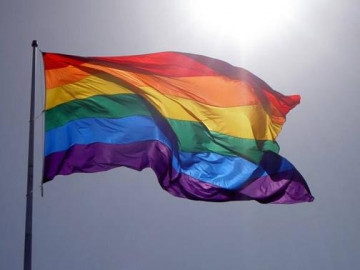Clark University Study Finds LGB Parents and Their Children Functioning Well
Saturday, July 26, 2014
Clark University associate professor of psychology Abbie E. Goldberg has published a new report that finds "lesbian, gay and bisexual (LGB) parents and their children are functioning quite well despite confronting heterosexism in a variety of social contexts, including healthcare, legal and school systems."
“Studies on LGB parenting have grown in number and scope over the past several decades, which enables us to understand how LGB parents and their children are doing when compared to different-sex parent families,” said Goldberg. “Despite concerns that the sexual orientation of LGB parents will negatively affect children, research is consistent in indicating that sexuality is not relevant to adults’ parenting capacities and the outcomes of their children."
Key Findings
GET THE LATEST BREAKING NEWS HERE -- SIGN UP FOR GOLOCAL FREE DAILY EBLAST- In the majority of contemporary LGB-parent families, the children were conceived in the context of different-sex relationships as opposed to being conceived or adopted in the context of same-sex relationships; however research is lacking on LGB stepfamily formation post-heterosexual divorce.
- Same-sex couples are approximately 4.5 times more likely than different-sex couples to be rearing adopted children. However, many LGB prospective parents are vulnerable to discriminatory attitudes on the part of adoption professionals—or denied adoption altogether.
- Studies that have compared lesbian, gay, and heterosexual parents in terms of mental health, perceived parenting stress, and parenting competence have found few differences based on family structure.
- Research findings are consistent in showing that psychological adjustment outcomes, academic achievement outcomes and social functioning outcomes for children born into LGB-parent families do not vary significantly from those in different-sex parent families. In addition, children of LGB parents do not seem to self-identify as exclusively lesbian/gay at significantly higher rates than children of heterosexual parents.
Gartell Reacts
“We’ve seen growth in the research on LGB parenting, but many studies have focused on a very specific portion of this population,” Gartrell said. “More research is needed that explores the experiences of working-class and racial minority LGB-parent families, as well as LGB-parent families living in non-urban environments. Such work is especially timely given demographic data showing that many LGB-parent families are residing in unexpected regions of the country.”
Click here for the full report.
Related Articles
- RI Foundation Offering Major Grants to LGBTQ Organizations
- ‘Fearless’ LGBT Photo Exhibit Stolen at Bryant
- PowerPlayer: Anthony DeRose, Chairman of the Democratic LGBTQ Caucus
- POPDCAST: Human Rights Campaign Grades Providence LGBT Inclusivity
- NEW: Blue Cross & Blue Shield of RI Scores High in LGBT Equality
- Human Rights Campaign Grades Providence On LGBT Inclusivity
- Clark University Students Intern Creatively At WaterFire



